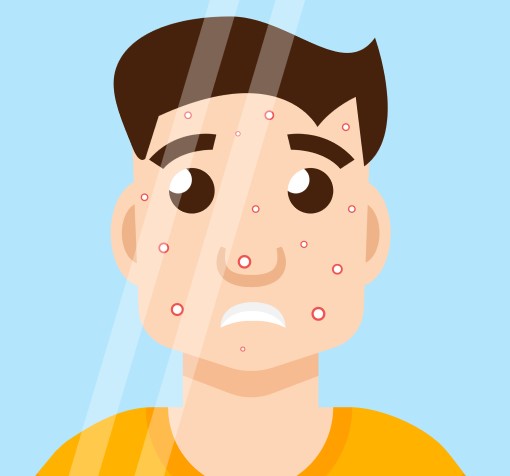
What to try if you suspect CPAP is causing acne – 13 Practical remedies
By Jason Wooden, PhD | May 10, 2022
Skin irritation from CPAP, including acne, is a common complaint. However, there are many other things linked to acne such as stress, poor sleep, hormonal changes, medications, smoking, and diet.
Depending on your specific issues, your options include stress management, improving your sleep, mask liners and cloth masks to avoid skin irritation, lifestyle changes, various natural home remedies, medications, and seeing a dermatologist.
Can CPAP really cause acne?
If you’re curious whether CPAP can cause acne, it’s understandable.
After all, living with sleep apnea and getting used to a CPAP setup can be challenging enough.
Anything that adds to the frustration is to be avoided.
You’re not the only one suspicious CPAP can cause acne.
Look online in CPAP forums and you’ll find people complaining about tiny painful pimples on the face, nose, or back of the head.
Acne is thought to affect as many as 1 out of every 10 people. It happens when hair follicles under the skin become clogged and inflamed leading to outbreaks of skin lesions.
Wearing items that place pressure on the skin is a known risk factor.
It turns out skin irritation from CPAP, including acne, is a common complaint.
(Sleep apnea patients also complain about sores and pressure marks.)
So, yes, CPAP really can cause acne.
Maybe your acne only showed up once you started using your CPAP machine…
Or perhaps you’ve noticed you’re getting more outbreaks than you used to…
Regardless, you need a better idea of whether CPAP is the cause of YOUR acne and and what YOU can do about it.
Let’s take a look.
Other things besides CPAP that could be causing your acne
Are you sure it’s CPAP that’s causing you acne?
Even if you only starting getting outbreaks after you started using your CPAP machine, there could be more going on.
There are many other things besides CPAP that can cause or worsen acne outbreaks:
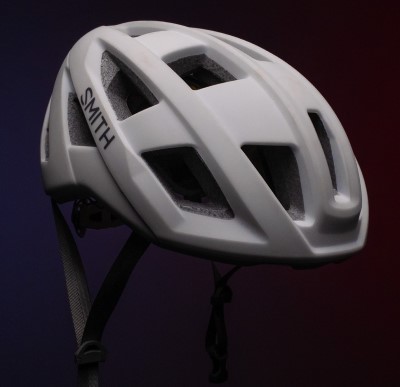
Pressure on the skin
I’ve already mentioned the acne link to pressure on the skin from the CPAP face mask and headgear. Pressure from other items such as sports helmets can do the same.
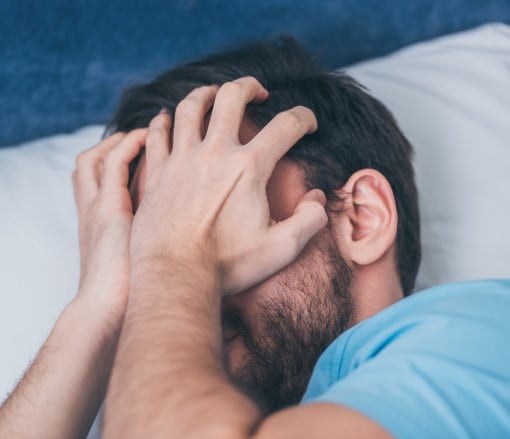
Stress
Most people are aware that stress can age skin faster. It turns out emotional stress can trigger or worsen acne.
In fact, studies suggest that as stress intensifies the severity of the acne increases.
In response to stress, the body produces hormones that stimulate glands to produce more oil which can make the skin oilier and greasier. This can lead to clogged pores and acne flare ups.
As many as 30 percent of dermatology cases are thought to involve a psychological problem.
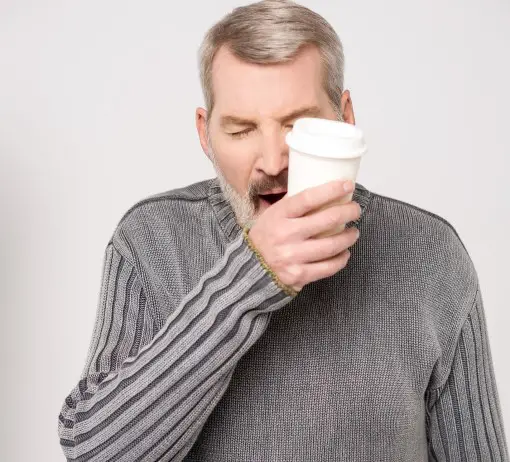
Poor sleep
Along with stress, poor sleep is another major risk factor for acne. That’s not too surprising since poor sleep quality is believed to trigger higher levels of stress hormones and inflammation in the body.
Unfortunately, many sleep apnea patients struggle with poor sleep.
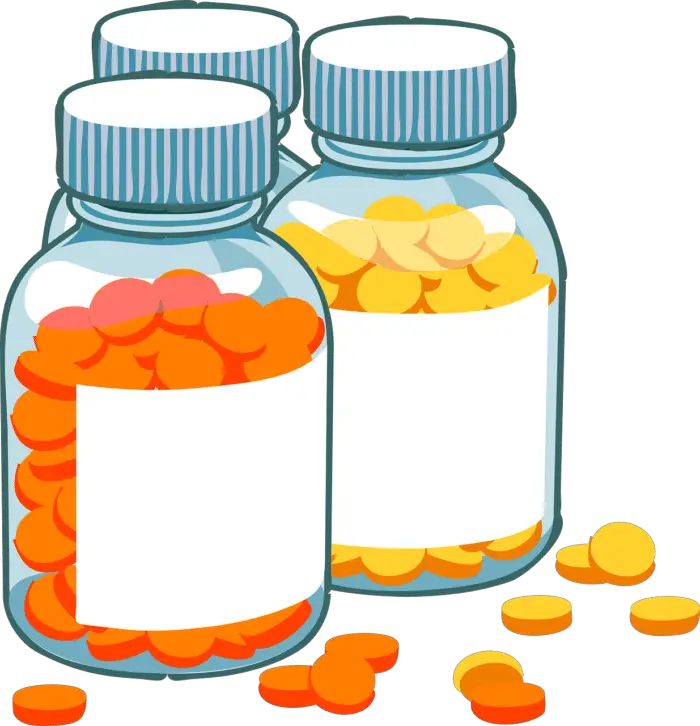
Medications
For poorly understood reasons, some medications can cause acne. The list includes corticosteroids, hormones, birth control, lithium, and some cancer drugs.

Pregnancy
It’s common for women to get acne during pregnancy. In fact, as many as 40% of expecting moms experience an acne flare up.
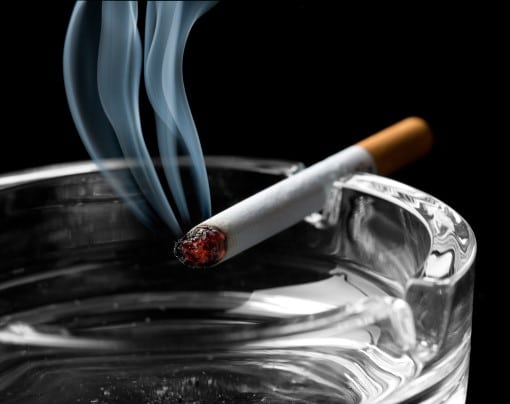
Smoking
Are you a regular smoker? There’s growing evidence for a link between smoking and acne.
It’s also bad for sleep apnea.

Diet
Evidence is growing that a diet rich in refined carbs, dairy, and fat can make acne worse.
13 remedies worth a try if you suspect CPAP is causing your acne
Now that you know what you’re up against, we’re going to look at your options. The good news is that there’s plenty of things CPAP users can do to prevent acne breakouts.
Depending on your situation and specific issues, your options include:
1) Stress management
The reason this is at the top of the list is obvious – it’s a major risk factor for acne. Every day you should be doing whatever you can to keep the stress down.
Avoid unnecessary stress, be realistic about what you can do, and set aside some time for fun. Other ways you can fight stress include relaxing activities, meditation, and exercise.
2) Improve your sleep
Similar to stress, I’ve already mentioned the link between poor sleep and acne. You should be doing everything you can to get the best possible sleep every night.
Start with sleep with practicing good sleep hygiene:
- keep your bedroom dark, cool, quiet, & relaxing
- keep consistent wake up & sleep times
- avoid naps
- exercise
- avoid large meals, alcohol, or stimulants such as caffeine before bedtime
- maintain a regular bedtime routine
- avoid using TVs, laptops, or other electronics before sleep
It’s also worth seeing a doctor to check for medical issues linked to poor sleep. The list includes chronic pain, heartburn, cancer, dementia, asthma, and even medications.
You may also be living with an undiagnosed sleep disorder such as sleep apnea.
3) Loosen your CPAP headgear
Your mask should sit snugly but gently on your face.
5) Cloth mask covers
Similar to mask liners, cloth covers can also help prevent skin irritation.
6) Try a nasal pad
Nasal gel-based pads can be placed on the nose bridge to avoid direct contact and reduce skin irritation.
7) CPAP gel
Made with aloe vera and other ingredients, CPAP gels are designed to prevent air leaks, allow for a looser and more comfortable fit, and reduce skin irritation.
8) Try a different CPAP Mask
Plenty of alternatives worth a try. If you’re currently using a nasal mask that’s irritating your nose, there are now leaner and more comfortable full face masks.
You can also try a gel based CPAP mask. Available from a variety of manufacturers, they use soft cushions for a more comfortable fit.
9) Staying hydrated
Making sure you’re adequately hydrated will help acne sores heal and reduce the risk of outbreaks.
10) Home remedies
While not clinically approved for acne treatment, there’s a wide variety of natural home remedies that might help.
Learn more:
Fifteen home remedies for acne (MedicalNewsToday)
7 Easy Home Remedies for Acne (EveryDay Health)
14 Powerful Home Remedies for Acne in 2022 (Healthline)
11) Change your diet
Findings from studies suggest that a diet that avoids high-glycemic foods and dairy from cow can help reduce acne. Also, a diet rich in healthy nutritious foods are thought to be beneficial to skin.
Learn more:
Can the right diet get rid of acne? (American Academy of Dermatology Association)
Anti-Acne Diet (Healthline)
12) Acne medications
Your choices include over-the-counter treatments such as salicylic acid and hydrogen peroxide. There are also stronger prescriptions meds.
13) See a doctor
A doctor can check for other causes and risk factors that may be involved with your sleep apnea. They can help come up with a treatment plan for your specific issues including medications that make sense for you.
Done everything you can think of and still suspect CPAP is the cause for your acne?
Okay, let’s assume you’ve done everything you can think of on your own, you’ve worked with a doctor, and you’re still getting acne flare ups.
If you’re sure (or strongly suspect) CPAP is causing your acne, there’s still hope. Luckily, CPAP isn’t the only game in town when it comes to sleep apnea treatment.
Today there are many new sleep apnea treatments which include more comfortable air pressure systems, body positioners, innovative oral appliances and pacemaker like devices, and surgically implanted suspension lines.
Sources:
1. “Acne”, National Institutes of Health website
2. A global perspective on the epidemiology of acne. Br J Dermatol. 2015 Jul;172 Suppl 1:3-12.
3. “How to Deal with Acne Related to CPAP”, Advanced Dental Sleep Treatment Center
4. “Acne Causes”, NHS website
5. The Impact of Pyschological Stress on Acne. Acta Dermatovenerol Croat. 2017 Jul;25(2):1133-141.
6. “ACNE: WHO GETS AND CAUSES”, American Academy of Dermatology Association website
7. “How Does Stress Cause Acne?”, 2021, MedicineNet
8. “Sleep and Stress”, 2022, Sleep.org
9. “7 Medications That Can Cause Acne”, 2022, GoodRx Health
10. Awan SZ, Lu J. Management of severe acne during pregnancy: A case report and review of the literature. Int J Womens Dermatol. 2017;3(3):145-150. doi:10.1016/j.ijwd.2017.06.001
11. Association between acne and smoking: systematic review and meta-analysis of observational studies. Chin Med J (Engl). 2021 Jan 5;134(15):1887-1888.
12. Diet and acne: review of the evidence from 2009 to 2020. Int J Dermatol. 2021 Jun;60(6):672-685.
Connect with us:
About Us
Better Sleep Simplified® was founded as a place for you to get clear and well-researched information.
Our goal is to make sure you know about your options so that you take action sooner rather than later.
Check us out on YouTube:
Watch and Learn
Helpful sleep tips, interesting sleep facts and statistics you want to know about
Affiliate Disclosure
This site is a participant in the Amazon Services LLC Associates Program and other affiliate advertising programs designed to provide a means for sites to earn advertising fees by advertising and linking to them.
Important: BetterSleepSimplified.com is for informational purposes only and is not intended or implied to be a substitute for professional medical advice, diagnosis, or treatment. Always consult a physician for sleep and health concerns. See additional information.


